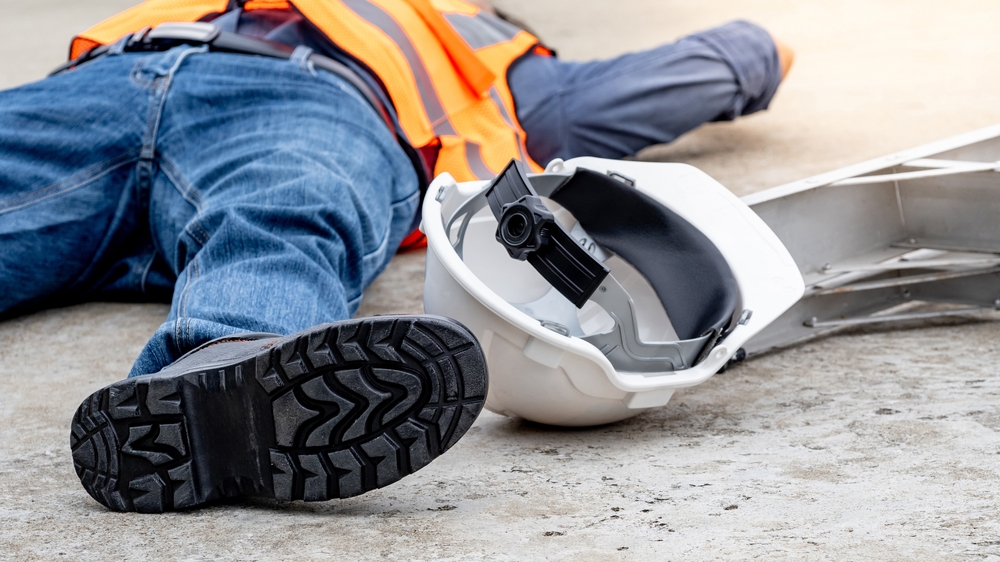Working outdoors in the Texas heat is no small feat, and for many workers, it’s not a choice. Whether on construction sites, delivery routes, farms, warehouses, or oil fields, heat exposure is a constant and potentially deadly risk.
At Hilliard Law, we’ve seen firsthand how employers’ failure to protect workers from extreme heat can result in life-altering injuries or tragic loss of life. If you or someone you love was seriously harmed by heat-related conditions at work, you may have more than just a workers’ compensation claim — you may have grounds for legal action.
Here’s what you need to know.
Why Heat-Related Injuries Are a Growing Problem
Texas consistently ranks among the top states for work-related deaths caused by environmental heat. Temperatures regularly exceed 100°F, and climate trends suggest longer, more intense heatwaves.
But the heat itself isn’t always the main culprit. Often, it’s the lack of appropriate safeguards like water breaks, rest periods, cooling areas, and training that puts workers in danger.
Common Heat-Related Workplace Conditions:
- Heat exhaustion: Dizziness, fatigue, nausea, and heavy sweating
- Heatstroke: A life-threatening emergency marked by confusion, fainting, and loss of consciousness
- Dehydration: Can lead to kidney damage and cardiac issues
- Burns: From contact with sun-heated surfaces or unshaded metal equipment
These injuries can escalate quickly without immediate care. For outdoor workers or those in hot indoor environments (like factories and warehouses), the danger is especially real.
When Employers Can Be Held Liable
Most heat-related workplace injuries fall under workers’ compensation. However, you may have grounds to sue outside the comp system in certain cases, particularly when a third party contributed to the injury or when the employer’s conduct rises to the level of gross negligence.
Employers may be liable when they:
- Ignore known heat hazards, such as requiring strenuous labor during heat advisories.
- Fail to provide basic protections like water, shade, rest breaks, or ventilation.
- Retaliate against workers who report unsafe conditions or ask for accommodations.
- Violate safety standards, including federal OSHA guidelines for heat exposure.
Unfortunately, a 2023 Texas law (HB 2127) has made things worse. The law blocks local governments from requiring workplace heat protections like mandatory water breaks. That means employers are now largely responsible for deciding how (or whether) to protect workers in extreme heat, especially in outdoor industries like:
- Construction and roofing
- Landscaping
- Agriculture
- Warehouse and factory work
- Delivery services
- Oil Field Work
When those decisions lead to preventable injuries or deaths, legal accountability may still be possible, especially in cases of serious negligence or reckless disregard for safety. In some cases, these incidents may warrant a personal injury or wrongful death claim, allowing for broader compensation than workers’ comp alone provides.
What If Your Employer Has Workers’ Comp?
If your employer carries valid Texas workers’ compensation insurance, your recovery may be limited to a workers’ comp claim, which can include:
- Medical expenses
- Partial wage replacement (temporary or permanent disability)
- Death benefits for surviving family members
However, there are important exceptions. You may still be able to file a lawsuit outside of workers’ comp if:
- Your employer does not subscribe to workers’ compensation (Texas allows employers to opt out, making them vulnerable to direct lawsuits when negligence causes injury).
- A third party (e.g., contractor, subcontractor, premises owner, or equipment manufacturer) contributed to the dangerous condition or failed to uphold safety standards.
- Your loved one died due to gross negligence, which may allow for a wrongful death claim seeking punitive damages, even if workers’ comp applies.
Understanding whether your case qualifies for a lawsuit outside of workers’ comp requires a close review of your employment status, who was responsible for safety, and the cause of your injury. An experienced attorney can help you explore all possible paths to compensation.
When to Consider Legal Action
If you or a loved one suffered a serious heat-related injury and believe it could have been prevented, it may be time to explore your legal options. This is especially true if:
- You were denied breaks, water, or safety gear during extreme temperatures.
- You reported unsafe conditions and were ignored or retaliated against.
- The injury occurred at a job site with prior complaints or known safety issues.
- A loved one passed away due to heatstroke, and you suspect gross negligence.
An attorney can review the facts and determine whether you have a case outside the workers’ comp system and whether you may be entitled to greater compensation.
Call Hilliard Law for a FREE Consultation: (866) 927-3420
At Hilliard Law, we’ve represented workers and families across Texas and beyond in high-stakes injury and wrongful death claims, including cases involving unsafe conditions and employer negligence.
If you believe you or your loved one suffered due to a preventable heat-related injury on the job, we’re here to help you understand your rights and legal options.
Call (866) 927-3420 or contact us online for a FREE consultation.

